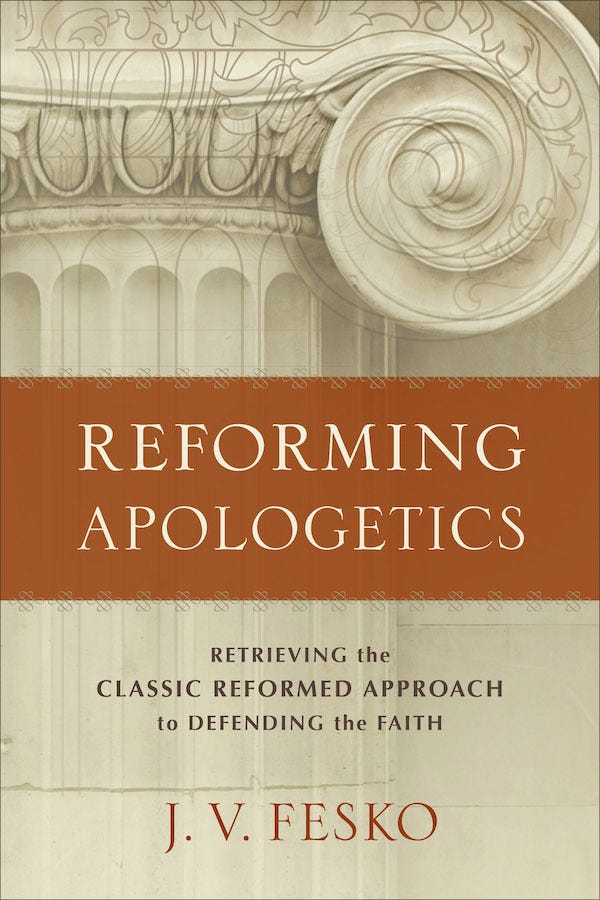What Role Does Natural Theology Have in Reformed Thinking? (A Review of Reforming Apologetics by J.V. Fesko)
Should Reformed Christians engage in natural theology? Or ought we to follow Karl Barth’s famous “nein” to natural theology and instead claim with Barth that all theology starts with Christ? The classical Reformed answer, according to J. V. Fesko, is to answer no to Barth and yes to natural theology.
He has a point. The Gallican Confession (1559), The Belgic Confession (1561), the Canons of Dort (1618–1619), and the Westminster Confession of Faith (1647) affirm ideas like the book of nature, innate knowledge in terms of common notions, or the light of nature. And in particular, Anthony Burgess, a framer of the WCF, penned a work affirming natural theology (Vindiciae Legis) whose imprint appears in the WCF (So Fesko 2019: 40).
Fesko interprets these sources and gives a close reading to the WCF in particular. In so doing, He closely attends to the original sources and their plain meaning. For example, the Belgic Confession plainly states: “We know God by two means: First, by the creation, preservation, and government of the universe, since that universe is before our eyes like a beautiful book.” The book of nature reveals God.
The evidence shows a consistent positive affirmation of natural theology among classical Reformed thinking. It further shows continuity with earlier medieval theology such as in Thomas Aquinas (1225–1274) whom the Reformed Divines frequently cited.
Certainly, natural revelation has its limits since it cannot save apart from God’s word and the noetic effects of sin have damaged the image of God. Yet within these limits, all people possess common notions such as God exists.
Yet neo-Calvinist theologians such as Cornelius Van Til and Herman Dooyeweerd argued that natural theology should have no place in Reformed theology. Van Til particularly saw natural theology as autonomous reasoning and something to be rejected.
Fesko, however, demonstrates that Van Til and Aquinas actually have much in common as Van Til’s famous disciple John Frame had previously argued. Van Til largely misunderstood Aquinas since he rarely engaged directly with Aquinas but mainly with secondary sources (2019: 72, 89).
Aquinas affirmed that supernatural revelation is needed for salvation and that the Fall damaged human nature (2019: 75, 85). The proofs for God’s existence supplement God’s revealed truths but remain only probable; Scripture alone, for Aquinas, provides foolproof truths about God (2019: 75–77). These things Van Til would actually agree with. But his misreading of Aquinas led him and some of his disciples to reject classical Reformed and Thomistic understandings of natural theology
Through the thorough and direct engagement of classical Reformed sources and Aquinas himself, Fesko has demonstrated that Van Til misunderstood Aquinas and differs from classical Reformed apologetics. And he further demonstrates the reality that classical Reformed Theologians affirmed both the book of Scripture and nature as a means to reveal truths.
Practically, Fesko sees apologetics functioning in a threefold manner: to respond to intellectual challenges, to clarify the truth, and to encourage believers (2019: 204).
This fascinating book forcefully and clearly argues for Retrieving the Classic Reformed Approach to Defending the Faith—the subtitle of Fesko’s work. He has written a necessary corrective to 20th-century intellectual movements that strayed from rightly understanding the book of nature.
Every interested reader should buy this book.
Disclaimer: Baker Academic provided me with a review copy of this book, although I was under no obligation to give the book of positive review.




